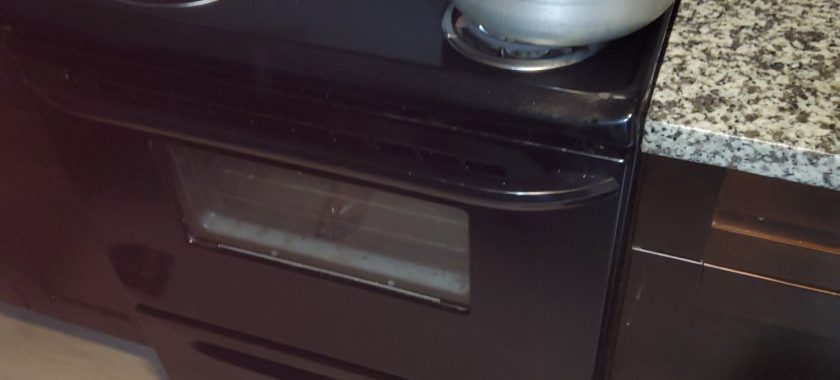Induction cooktops are known for their efficiency, speed, and precise temperature control. But one problem can quickly turn a convenient cooking experience into a frustrating one: the cooktop randomly switching off during use. If your induction cooktop shuts down mid-boil, mid-fry, or mid-simmer, it is almost always reacting to an internal issue that requires attention.
Two common causes stand behind this malfunction: the overheating protection system activating or a faulty cooling fan failing to maintain proper airflow. Understanding how these systems work can help you determine why your cooktop behaves unpredictably and what steps you should take to restore normal operation.
Why Induction Cooktops Turn Off Automatically
Induction cooktops rely on sophisticated internal electronics. To prevent damage, they are designed to shut down when temperatures exceed safe limits. This is not a flaw – it is a safety feature. However, when the shutdowns occur frequently or unpredictably, the system may be responding to deeper mechanical issues.
Let’s look at the most common scenarios.
Cause 1: Overheating Protection System Engaging
Every induction cooktop is equipped with sensors that monitor internal temperature. When the heat inside the device rises above a certain threshold, the cooktop automatically turns off to prevent:
- Damage to electronic components
- Melting or deformation of internal wiring
- Fire hazards
Overheating can happen for several reasons:
Blocked Air Vents
Air vents allow hot air to escape and cool air to flow into the system. When they are blocked by grease, dust, or debris, the cooktop overheats quickly. Items stored underneath or around the cooktop can also restrict proper ventilation.
Prolonged High-Heat Cooking
Using the maximum heat level for extended periods, especially with large pots or heavy cookware, can trigger overheating. Although induction technology is efficient, it still generates significant internal heat that must be dissipated.
Improper Installation
If the cooktop is installed too tightly into the countertop or lacks the required ventilation clearance, airflow becomes limited. Even a perfectly working cooling system cannot perform well without space to breathe.
When the overheating protection system reacts repeatedly, the issue must be addressed promptly to prevent long-term damage.
Cause 2: Faulty or Failing Cooling Fan
The cooling fan plays a critical role in maintaining safe temperatures inside the induction cooktop. When it malfunctions, the internal components heat up faster than the system can manage, forcing the cooktop to shut itself off.
Common signs of a failing cooling fan include:
Strange Noises
A grinding, buzzing, or rattling noise indicates worn-out fan bearings or a loose fan blade.
Fan Not Running at All
If the fan does not activate when the cooktop heats up, the sensors will detect rising temperatures and immediately shut the system down.
Fan Running Weakly
Dust buildup, electrical issues, or partial mechanical damage can cause the fan to run slower than required, reducing airflow.
A malfunctioning fan will continue to cause repeated shutdowns until repaired or replaced.
Is It Safe to Continue Using the Cooktop?
When your induction cooktop turns off randomly, ignoring the issue can lead to serious consequences:
- Permanent damage to the control board
- Burn-out of internal electrical components
- Full cooling system failure
- Complete cooktop breakdown
Because the unit shuts off as a protective response, continued use without repair increases the risk of expensive damage.
What You Can Check Before Calling a Technician
Although most issues require professional repair, you can perform a few basic checks:
1. Clear Ventilation Areas
Ensure there are no objects blocking the airflow around the cooktop. Clean dust or grease from vent openings if visible.
2. Let the Cooktop Cool Down
If it shuts off, allow it to rest for at least 20 minutes before restarting. Frequent overheating is a clear sign of internal trouble.
3. Verify Cookware Compatibility
Only induction-compatible cookware should be used. Poor-quality or warped pans can cause the system to overheat.
4. Avoid Max Power for Long Periods
Reduce heat levels occasionally to minimize internal temperature buildup.
If the issue persists, the cooktop needs professional diagnosis.
When to Call a Professional
Internal issues such as cooling fan failure, wiring malfunction, thermostat sensor error, or control board defects require specialized tools and expertise. Attempting repairs without experience can worsen the problem or cause safety hazards.
A certified appliance technician can:
- Diagnose cooling system issues
- Replace a faulty fan
- Restore proper ventilation
- Repair damaged sensors
- Prevent future overheating
A properly serviced induction cooktop will work reliably, safely, and efficiently for many years.
Need Reliable Repair?
If your induction cooktop shuts off unexpectedly, don’t wait for the problem to get worse. Trust the experts.
Contact Chula Vista Appliance Repair Company today. We provide fast, professional diagnostics and high-quality repairs for all induction cooktop models. Call now and restore your kitchen comfort and safety.
Contact us
(619) 880-5508


